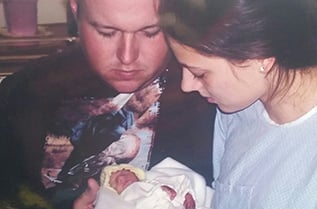GALT sequencing is a molecular test used to identify variants in the gene associated with Galactosemia.
10 days
81406
$1,000
Galactosemia is an autosomal recessive inborn error of carbohydrate metabolism caused by the deficiency of galactose-1-phosphate uridyl transferase (GALT), which performs the second enzymatic step in the conversion of galactose to glucose-1-phosphate. As a result of the enzyme deficiency, excess galactose is excreted in the urine and the substrate for GALT, galactose-1-phosphate, accumulates throughout the body. Manifestations of the disease appear within days of the initiation of milk feedings, and include vomiting, jaundice and failure to thrive. If left untreated for a prolonged period of time, patients will develop hepatomegaly, cataracts and intellectual disability. Speech delay and premature ovarian failure are also observed in many galactosemia patients, even in those who are diagnosed early and put on treatment. Galactosemia is typically detected very early because of newborn screening programs, which measure GALT enzyme activity in dried blood spots. Mutations in the GALT gene are responsible for the classic form of galactosemia (G/G). This sequencing analysis can help identify the disease causing mutations in patients.
Sanger Sequencing
A mutation in GALT will be indentified in approximately 99% of patients with classic galacossemia.
The preferred sample type is 3-5 ml of peripheral blood collected in an EDTA (purple top) tube. Extracted DNA, dried blood spots, and saliva are also accepted for this test. Saliva samples must be submitted in an approved saliva kit. Contact the lab to receive a saliva kit or to have one sent to your patient.
The specimen should be kept at room temperature and delivered via overnight shipping. If shipment is delayed by one or two days, the specimen should be refrigerated and shipped at room temperature. Do not freeze the specimen. Samples collected on Friday can be safely designated for Monday delivery.
Prenatal diagnosis is available if the familial mutations are known. Additional fees for cell culture and maternal cell contamination may apply. Maternal cell contamination studies are required for all prenatal molecular tests. Contact the laboratory prior to sending a prenatal specimen.
Call our laboratory at 1-800-473-9411 or contact one of our Laboratory Genetic Counselors for assistance.
Robin Fletcher, MS, CGC
Falecia Thomas, MS, CGC
Alex Finley, MS, CGC
